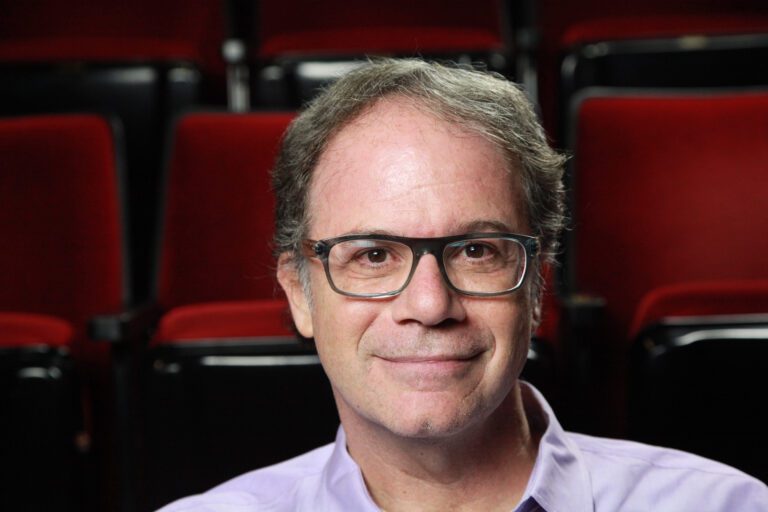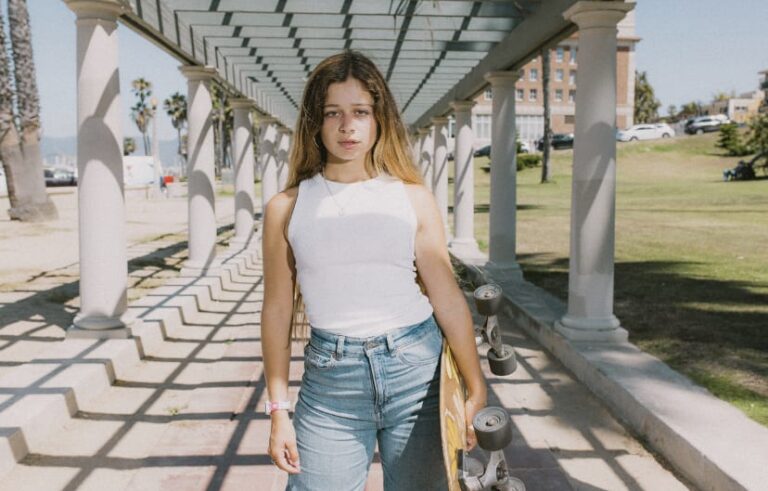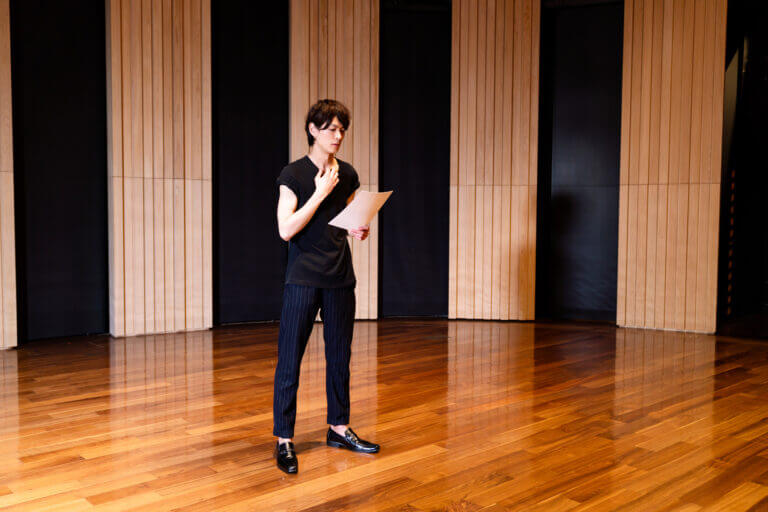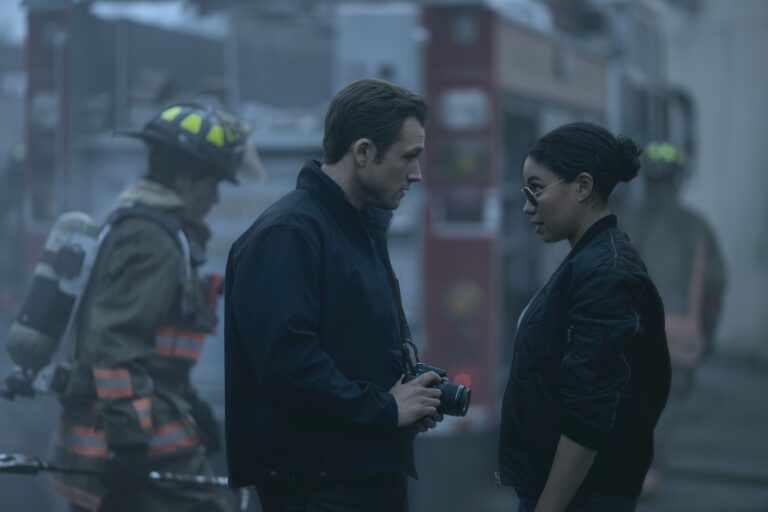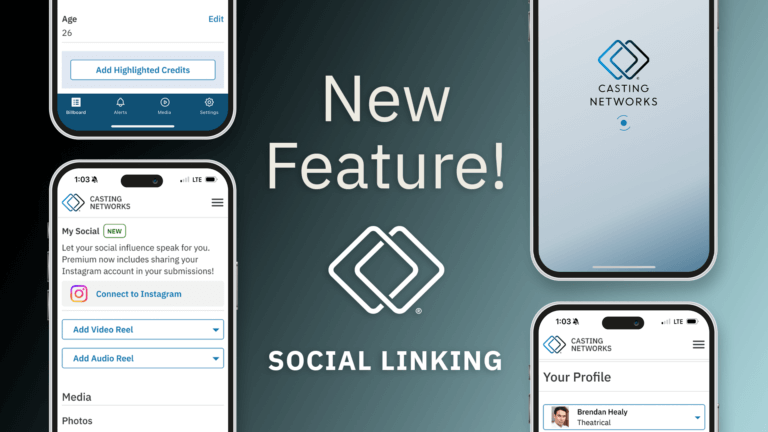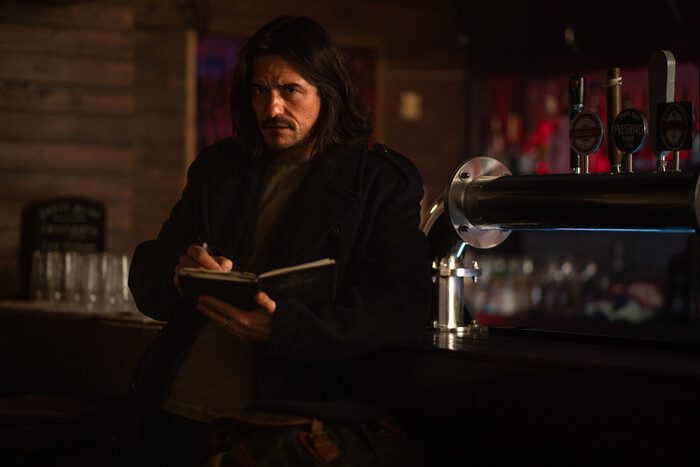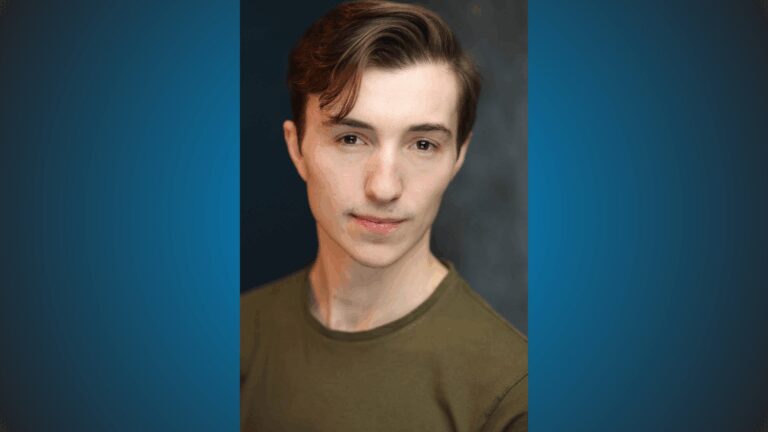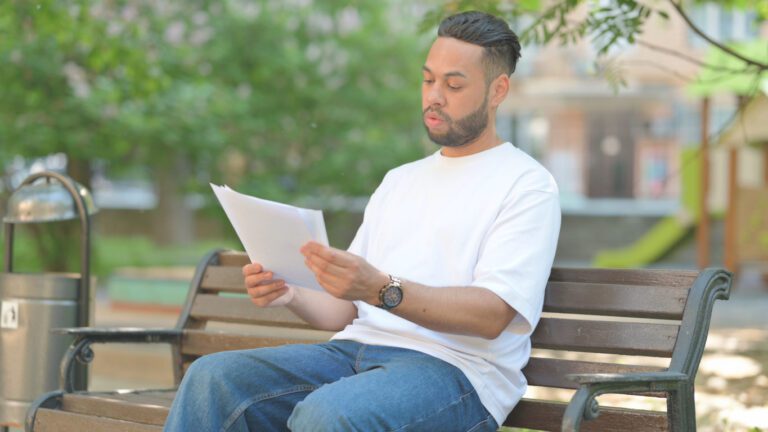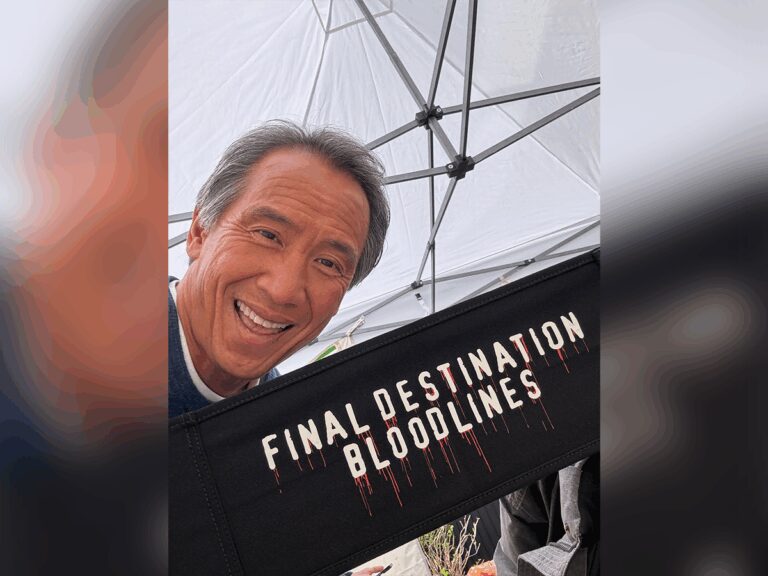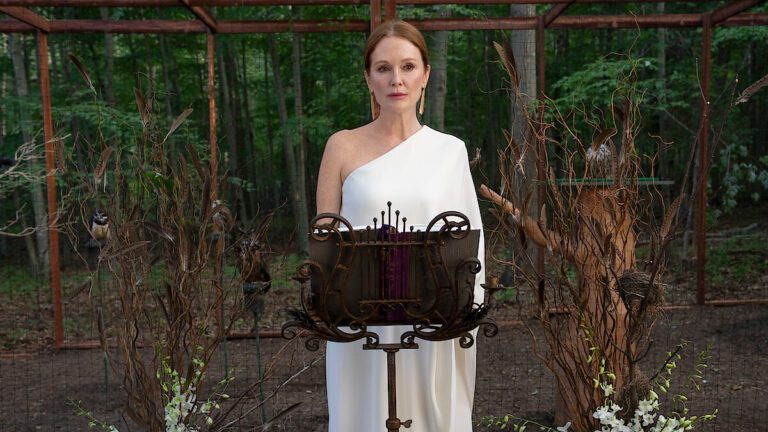Memorable first-time acting performances don’t just happen. They have to be crafted, coaxed out and coached up, not unlike an NBA basketball player’s journey from rec ball to the pro ranks.
But it usually doesn’t happen without a great talent to start, even if raw.
Enter acting coach Noëlle Gentile.
She’s one of the big reasons Juancho Hernangómez made the most of his big-screen/streaming debut. Through coaching, Gentile helped the Spanish-born NBA player land the role in the highly successful Adam Sandler Netflix sports drama Hustle with an audition tape that made people stop in their tracks.
Hernangómez got paired with Gentile (a teacher/artist-educator in her own right) by director Jeremiah Zagar, whom she’d worked with in the past, to get the most out of his performance. I’m not sure anyone, including producer LeBron James, expected one as real, heartfelt and fun to watch as what Zagar ultimately got from Hernangómez – or the other NBA players (former and current) on the film.
But don’t just take it from me.
In one review of the film, The Hollywood Reporter called Hernangómez “immensely likable and magnetic in his first screen role.” Then there was the film’s premiere, where THR reported Sandler told everyone Hernangómez “acts better than me in every scene… It’s just like, God damn it. This guy is falling, crying in the middle of a scene, doing the right thing. Every joke he says, I’m like, ‘He said it smoother than I would have.’”
Then there’s the high praise the 26-year-old Utah Jazz player himself levied of Gentile’s approach in helping to elicit his A-game. Hernangómez credits her as his “daily inspiration to be a better actor, and more importantly, a better person” and “one of the best people I’ve ever known.”
I’m not sure I’ve ever seen an acting coach get better reviews.
I recently got a chance to catch up with Gentile while she was in Toronto for a new Happy Madison film. We talked Hustle, what it’s like to work with NBA players, the beauty of the human connections that formed during a time of great uncertainty and how it feels when Dr. J calls you “coach.”
Here’s how it went.
Congrats on being part of the best sports film I’ve seen in a long time. Please tell us how you became the acting coach on Hustle.
I got involved because I worked with Jeremiah Zagar, the director, on his first narrative feature We the Animals… I live in upstate New York and he was casting there and wanted me to help out. At the time, I was directing a play, teaching and pregnant so I turned it down and then he wound up coming to the school I taught at, and I helped him audition some of the kids and from that point, he asked me to join him on that film.
And then I kind of went back to my life. I was teaching high school theater, loved my job, creating new works with young people and doing multimedia theater. And then, the pandemic happened. Jeremiah called me that June and told me that Adam [Sandler] had reached out to him to do the film and he wanted to know if I wanted to work with him again.
I’ve never seen so much praise levied for an acting coach on one film. How many people did you actually work with on Hustle – and who were they exactly?
I worked with Anthony Edwards, Juancho Hernangómez, Julius Erving, Dell Demps, Kenny Smith, Boban, Elvin Rodriguez, who’s in that scene in Spain playing the one-on-one game with Juancho. And then I did a lot of work with María Botto, who is a professional actress. I worked with her and Ainhoa [Pillet], who play Juancho’s mother and daughter [respectively], on building that family story together.

Photo Credit: Scott Yamano / Netflix
What is the challenge of working with professional athletes who are used to performing on a different stage?
I didn’t find any particular challenges. So much of the work for me is about making connections with people. It’s about relationships versus transactional experiences. Whenever I work with anyone, I think the most authentic parts of people come out in spaces where they feel seen, loved and appreciated. It’s about creating that space and looking for the spark, the unique thing. Paying attention to who someone is, celebrating it and asking them to lean into the most authentic part of themselves.
Can you give a couple of examples of how you applied that?
With each performer, we worked in different ways. Kenny [Smith] told me lots of stories about his experiences in the NBA. We had a great time together. His stories were super helpful to me to contextualize the whole story – and then we also segued that into his scenes and his character doing improvisation around that.
Juancho really loved using guided meditation – and then leading that into improvisation. I think the reason I feel really comfortable doing that is that I taught for over 20 years, so I’ve worked with so many different people. It’s really about creating an experience for the individual and paying attention to what works best for them.
When it comes to Juancho Hernangómez, this was no token athlete appearance or cameo. How did you coach him up so he could successfully make the transition from the hardwood to Hollywood?
We spent a lot of time together initially over Zoom. I first met Juancho in his callback experience. As soon as I met him and we started exploring the scenes together, I thought: Oh, this is him. Like many people who met him, I just sort of knew right away. Because of Covid, we worked over Zoom for a month or two prior to filming. A lot of what we did was based on things in the script. We sort of built his whole character out. We went back and explored scenes that are referenced and acted them out.
What’s an example of the “building” process?
I pretended to be his ex-girlfriend so that they were these really lived in, rich experiences. So that once we got on set together, he had access to tap into those things. We explored a lot of those relationships through improvisation, which he loved. And then, when we would go on set, if he had a particularly emotional scene, I would do a guided meditation and would be right there and drop in a note based on what we’d done together already. Juancho has a deep emotional life and so he had access to a range of emotions to authentically drop into that character.
I read about the letters you had Juancho’s character Bo Cruz write to his fictional father and daughter. Can you explain how you got to that, if that’s an exercise you’ve used with others and/or if you felt that this was especially pertinent for this character to access things in his backstory.
We explored a lot of the backstory together, but I wanted to give him time to meditate and be with those relationships without me. And take the time outside of our work together to be with whoever he was writing that letter to. It was one tool amongst many to almost build a collage of experiences he could draw from. Some might have resonated more than others.
When should an actor improvise and leave the script behind? I read there was some of that in Hustle’s big scene in the car when Juancho’s and Sandler’s character have it out.
Jeremiah’s a really gifted director and he’s comfortable with things drifting from the script time to time and intuitive about when to give space to those moments. Juancho and I trained for that scene – that was our scene! – and we were super excited about it and as we were filming over two years, it got pushed to the second year. We were so deeply invested in the story that we had built together and what the stakes were. I was able to work with him throughout the yelling scene particularly – we did a bunch of improv before the scene started to get the adrenaline going and to get into that moment.
In this piece that ran on the Netflix blog Tudum, Juancho Hernangómez says you taught him how to cry for the scene in the hotel room with his mother. How did you do that?
So much of what I do is create or hold space for someone to access. And to create a space where someone feels comfortable and safe to be vulnerable. I don’t encourage people to tap into their own stuff because it might not be safe for them. That’s why all that improvisation we built around the character and story was to make it real enough so he could access and drop into that emotional moment. In both scenes, he also had beautiful scene partners in María Botto and Adam… so that’s also a gift.
Are the meditative exercises you used with Juancho part of your “style” or is it a case-specific approach?
It’s kind of case-specific, but it’s like a journey to a moment and being present with a moment. I do an exercise to travel there and then drop into the moment and explore it through a meditation. I use that either for a scene that’s going to start, an improv that’s gonna start or a writing exercise. Just really guiding somebody into a space or a moment in that character’s life.
As a non-actor, I’m trying to imagine that…
It’s like the way you would fill something in if you were reading a book. And you can really visually see it, feel it and listen in on the conversation and let your imagination go there. Like if you could’ve said something different in the moment, what would that have been? Exploring that with guidance and independently in one’s own mind.
Can you encapsulate the challenge of being an acting coach on this film during year one of Covid?
I am forever thankful for Zoom. It’s really important to be able to see someone when you’re doing this deep work. To have been able to build relationships with each of the people I worked with this way, so that when they saw me on set all masked up and goggled… we already had a relationship. I didn’t love it, but I also have a medically fragile daughter, so I was super thankful for the safety, particularly that first year.
Finally, tell me something you haven’t shared in any other interview about this film that you’re dying to say…
Coming in after Covid, our connections to each other and our mutual human experiences of joy and love and pain felt so important to share with one another. The whole thing was a very unexpected experience for me. Like I said, I was teaching high school a year before so it was incredible. Everyone was so kind to me and open… It was just really magical, just the amount of fun. I can get emotional talking about… It was just a very transformational experience for me. It was energetically so high, vibrating. I don’t know how to put words to it. Covid was such a hard time, and such a scary time. It was just this very intense level of positivity that the players brought to the set that was incredible.
And Dr. J called me “coach.”
Amazing.

